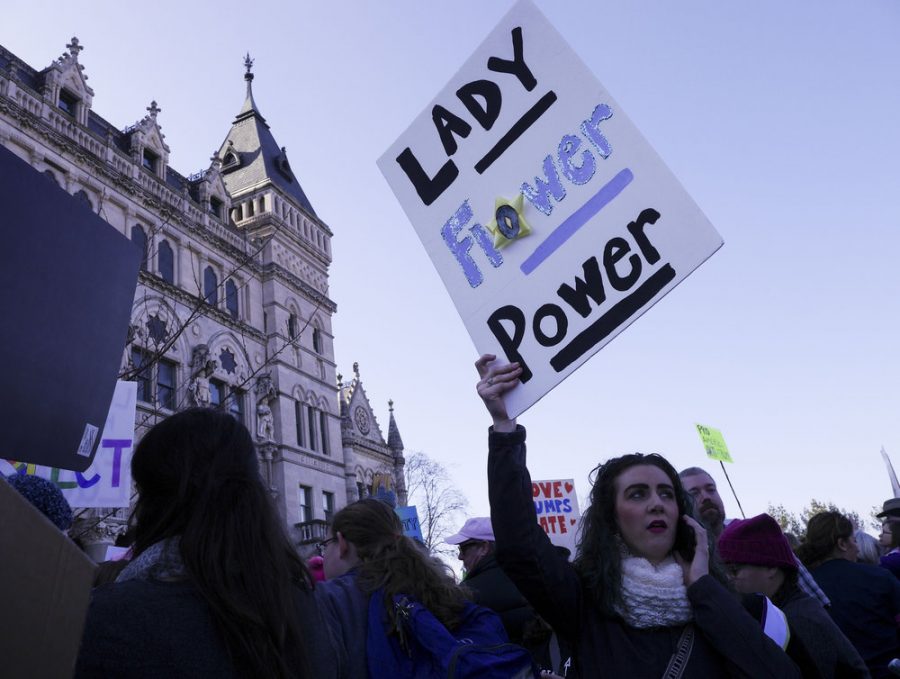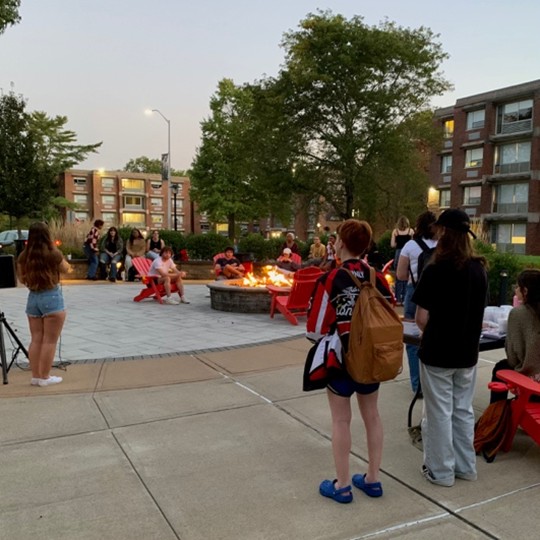Women’s rights rally at Connecticut State Capitol
Courtesy of dailycampus.com
January 30, 2019
Exacerbated by the government shut-down, yet in no way a novel issue, abortion has once again risen to the forefront of political debate. As the left continues to fear that their right to terminate their pregnancies will be encroached upon, they continue to fight for stronger guarantees of abortion rights. As recent as last week, New York passed a bill legalizing abortions up until the time of birth.
A few days before this, on January 19, over 3,000 people gathered at the Connecticut State Capitol to protest President Donald Trump and Republican policies aimed at reducing the number of abortions. This rally, composed of mostly women, has made its third year as a movement that was born out of resistance to elected President Donald Trump.
Although the weather was quite unpleasant at its peak, while mostly cold and stormy, thousands of individuals made an appearance in hopes of hearing the speeches given that day. From Kristin Song, a mother whose son was killed as a result of an unsecured firearm, to Rabbi Andi Fliegel of Congregation Beth Israel, speakers included political activist Alicia Hernandez Strong and disability rights advocate Nyema Pinkney, who became blind about ten years ago.
Many women brought their families and children to the event, believing that their message had been lost among all of the political turmoil and the “glaring offenses” coming out the White House. “I’m here to protect what rights we have,” said Cathy McElroy. She went on to say that, like many of the other women present, she has daughters and wants them to become leaders who are capable of influencing positive change.
Although securing reproductive rights was the primary goal, other issues, such as transgenderism, immigration, environmental justice, and ending violence, were also addressed during this rally. While many of the signs promoted a progressive feminist agenda, insisting that “women’s rights are human rights,” others reflected the ongoing divisiveness of American political feeling, referring to the president as a “treasonous orange monster” and equating the GOP to “the groping old perverts” party.
However, the unwillingness of march leaders to denounce the perceived antisemitism of the remarks made by the controversial Nation of Islam leader, Louis Farrakhan, marred the event’s initial purpose.











